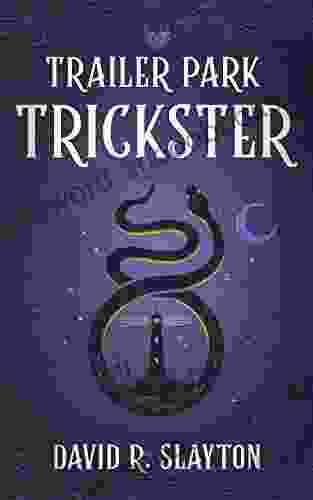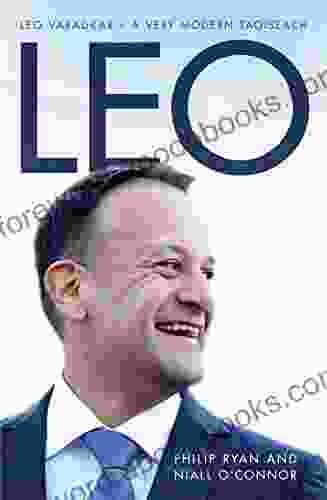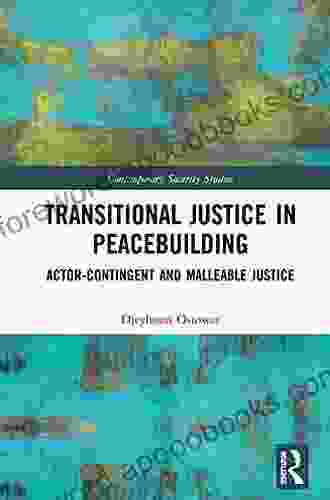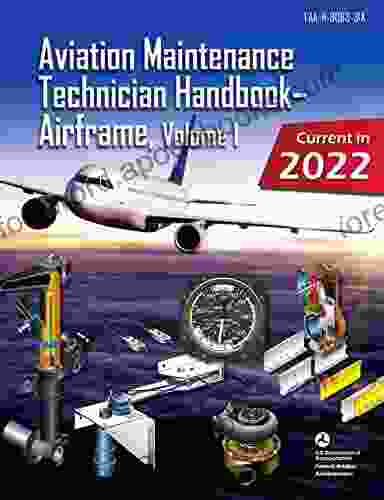Actor Contingent and Malleable Justice: Contemporary Security Studies

The concept of justice is central to contemporary security studies. It is used to justify the use of force, to assess the legitimacy of security policies, and to guide the design of security institutions. However, the meaning of justice is contested, and there is no single definition that is universally accepted.
4.6 out of 5
| Language | : | English |
| File size | : | 3121 KB |
| Text-to-Speech | : | Enabled |
| Enhanced typesetting | : | Enabled |
| Word Wise | : | Enabled |
| Screen Reader | : | Supported |
| Print length | : | 196 pages |
In this book, I argue that justice is a contingent and malleable concept that is shaped by the actors involved. I draw on a range of case studies to illustrate this argument, including the use of drones in warfare, the securitization of climate change, and the role of international law in global security.
I show that the meaning of justice can vary depending on the perspective of the actor, the context in which the issue is being considered, and the power relations between the actors involved. This means that there is no single, objective definition of justice that can be applied to all cases.
Instead, I argue that justice is a negotiated concept that is constantly being contested and redefined. It is a product of the interactions between actors, and it is shaped by the power relations between them.
This has important implications for the way that we think about security. It means that there is no single, objective way to achieve justice in the world. Instead, the meaning of justice will vary depending on the specific context in which it is being considered.
This does not mean that justice is impossible to achieve. However, it does mean that we need to be aware of the contingent and malleable nature of justice. We need to be open to different perspectives, and we need to be willing to negotiate and compromise in Free Download to find solutions that are just for all.
Drones and the Contingent Meaning of Justice
The use of drones in warfare is a controversial issue. Critics argue that drones are indiscriminate and that they often kill innocent civilians. Supporters argue that drones are a precise and effective way to target terrorists.
The debate over drones highlights the contingent nature of justice. There is no easy answer to the question of whether or not drones are just. The answer depends on the perspective of the actor, the context in which the issue is being considered, and the power relations between the actors involved.
For example, a civilian who has been killed by a drone strike may see the use of drones as unjust. A soldier who has used drones to kill terrorists may see the use of drones as just. A government official who has authorized the use of drones may see the use of drones as just.
The meaning of justice in the context of drones is also shaped by the power relations between the actors involved. The United States, which is the world's leading user of drones, has a much different perspective on the use of drones than do the countries that are subject to drone strikes.
The United States sees the use of drones as a necessary tool in the fight against terrorism. However, countries like Pakistan and Yemen, which have been subjected to drone strikes, see the use of drones as a violation of their sovereignty and a threat to their security.
The contingent nature of justice means that there is no single, objective answer to the question of whether or not the use of drones is just. The answer depends on the perspective of the actor, the context in which the issue is being considered, and the power relations between the actors involved.
Climate Change and the Malleability of Justice
Climate change is another controversial issue that raises important questions about justice. Climate change is caused by the emission of greenhouse gases, which are released into the atmosphere through human activities such as burning fossil fuels.
The effects of climate change are already being felt around the world. These effects include rising sea levels, more extreme weather events, and changes in agricultural yields. Climate change is also having a disproportionate impact on the world's poorest and most vulnerable people.
The question of justice in the context of climate change is a complex one. There is no easy answer to the question of who is responsible for climate change and who should bear the costs of mitigating its effects.
However, it is clear that the countries that have contributed the most to climate change have a responsibility to help the countries that are most vulnerable to its effects. This means providing financial assistance, technology transfer, and other forms of support.
The malleability of justice means that there is no single, objective answer to the question of how to address the issue of climate change. The solution will depend on the specific context in which the issue is being considered and the power relations between the actors involved.
However, it is clear that justice requires that the countries that have contributed the most to climate change take responsibility for helping the countries that are most vulnerable to its effects.
International Law and the Limits of Justice
International law is a body of rules and principles that governs the conduct of states in their relations with each other. International law is based on the principle of sovereignty, which means that states are independent and have the right to govern themselves without interference from other states.
International law is an important tool for promoting justice in the world. However, it has its limits. International law is only effective if states comply with it. And, as we have seen, the meaning of justice can vary depending on the perspective of the actor and the power relations between the actors involved.
This means that international law cannot always be relied upon to ensure justice. In some cases, states may be willing to violate international law in Free Download to pursue their own interests.
The limits of international law highlight the importance of actor contingency and malleability in the concept of justice. Justice is not something that can be achieved simply by following a set of rules. It is a product of the interactions between actors, and it is shaped by the power relations between them.
This means that we need to be realistic about what international law can and cannot do. International law can be a useful tool for promoting justice, but it is not a guarantee of justice.
The concept of justice is central to contemporary security studies. However, the meaning of justice is contested, and there is no single definition that is universally accepted.
In this book, I have argued that justice is a contingent and malleable concept that is shaped by the actors involved. I have drawn on a range of case studies to illustrate this argument, including the use of drones in warfare, the securitization of climate change, and the role of international law in global security.
I have shown that the meaning of justice can vary depending on the perspective of the actor, the context in which the issue is being considered, and the power relations between the actors involved. This means that there is no single, objective definition of justice that can be applied to all cases.
Instead, I argue that justice is a negotiated concept that is constantly being contested and redefined. It is a product of the interactions between actors, and it is shaped by the power relations between them.
This has important implications for the way that we think about security. It means that there is no single, objective way to achieve justice in the world. Instead, the meaning of justice will vary depending on the specific context in which it is being considered.
This does not mean that justice is impossible to achieve. However, it does mean that we need to be aware of the contingent and malleable nature of justice. We need to be open to different perspectives, and we need to be willing to negotiate and compromise in Free Download to find solutions that are just for all.
4.6 out of 5
| Language | : | English |
| File size | : | 3121 KB |
| Text-to-Speech | : | Enabled |
| Enhanced typesetting | : | Enabled |
| Word Wise | : | Enabled |
| Screen Reader | : | Supported |
| Print length | : | 196 pages |
Do you want to contribute by writing guest posts on this blog?
Please contact us and send us a resume of previous articles that you have written.
 Book
Book Novel
Novel Page
Page Chapter
Chapter Text
Text Story
Story Genre
Genre Reader
Reader Library
Library Paperback
Paperback E-book
E-book Magazine
Magazine Newspaper
Newspaper Paragraph
Paragraph Sentence
Sentence Bookmark
Bookmark Shelf
Shelf Glossary
Glossary Bibliography
Bibliography Foreword
Foreword Preface
Preface Synopsis
Synopsis Annotation
Annotation Footnote
Footnote Manuscript
Manuscript Scroll
Scroll Codex
Codex Tome
Tome Bestseller
Bestseller Classics
Classics Library card
Library card Narrative
Narrative Biography
Biography Autobiography
Autobiography Memoir
Memoir Reference
Reference Encyclopedia
Encyclopedia Sir Reed A Lot
Sir Reed A Lot David J Harding
David J Harding David Mcneill
David Mcneill Nick Cohen
Nick Cohen David Greenberg
David Greenberg Lawrence Compagna
Lawrence Compagna Geoffrey Thorne
Geoffrey Thorne Larry Sandberg
Larry Sandberg David Michael King
David Michael King Roxanne Tully
Roxanne Tully Smart Lazy Investor
Smart Lazy Investor Peter Westoby
Peter Westoby Emma Straub
Emma Straub John Derbyshire
John Derbyshire Sheryl J Bize Boutte
Sheryl J Bize Boutte Kim V Poetry
Kim V Poetry Shirley Osborne
Shirley Osborne Jonathan Baron
Jonathan Baron Donna Wolfe
Donna Wolfe John F Oyler
John F Oyler
Light bulbAdvertise smarter! Our strategic ad space ensures maximum exposure. Reserve your spot today!

 Christian BarnesThe Highlander's Promise: A Highland Brides Book That Will Capture Your Heart
Christian BarnesThe Highlander's Promise: A Highland Brides Book That Will Capture Your Heart
 Alexandre DumasUnleash the Prowess of Jaguar: An In-Depth Review of Jaguar Shire Library 709...
Alexandre DumasUnleash the Prowess of Jaguar: An In-Depth Review of Jaguar Shire Library 709...
 Harvey HughesToo Much Lip: A Novel That Will Ignite Your Imagination and Captivate Your...
Harvey HughesToo Much Lip: A Novel That Will Ignite Your Imagination and Captivate Your... Levi PowellFollow ·4.9k
Levi PowellFollow ·4.9k Juan RulfoFollow ·4.9k
Juan RulfoFollow ·4.9k Thomas MannFollow ·15.4k
Thomas MannFollow ·15.4k Caleb LongFollow ·17.1k
Caleb LongFollow ·17.1k Larry ReedFollow ·17.3k
Larry ReedFollow ·17.3k Samuel Taylor ColeridgeFollow ·11.4k
Samuel Taylor ColeridgeFollow ·11.4k Terence NelsonFollow ·4.3k
Terence NelsonFollow ·4.3k Branden SimmonsFollow ·8.2k
Branden SimmonsFollow ·8.2k

 Douglas Powell
Douglas PowellEscape into a World of Sweet Love and Second Chances with...
Prepare yourself...

 Garrett Powell
Garrett PowellMaster Badminton: A Comprehensive Guide to the Thrilling...
Are you ready to step into the world of...

 Deacon Bell
Deacon BellTrailer Park Trickster: The Adam Binder Novels
Book 1: The...

 Oscar Bell
Oscar BellLeo: The Very Modern Taoiseach
Leo Varadkar's journey...
4.6 out of 5
| Language | : | English |
| File size | : | 3121 KB |
| Text-to-Speech | : | Enabled |
| Enhanced typesetting | : | Enabled |
| Word Wise | : | Enabled |
| Screen Reader | : | Supported |
| Print length | : | 196 pages |










